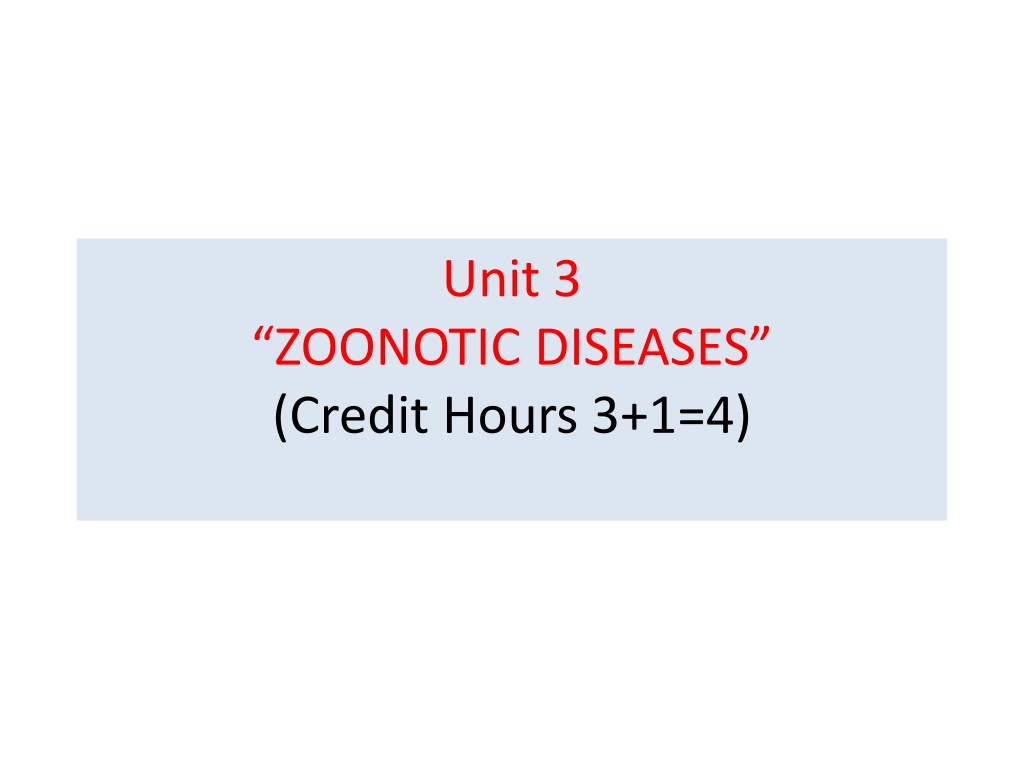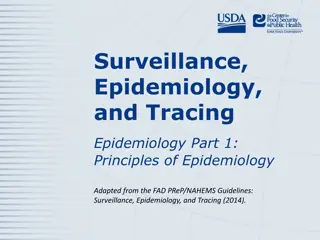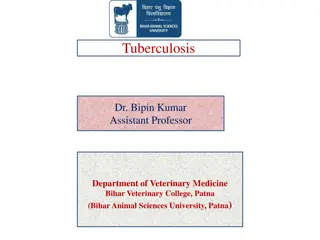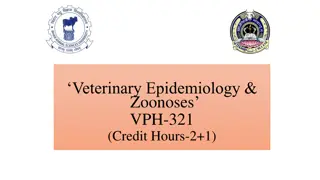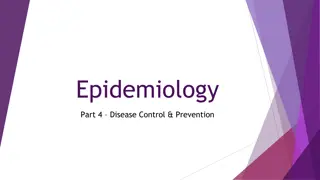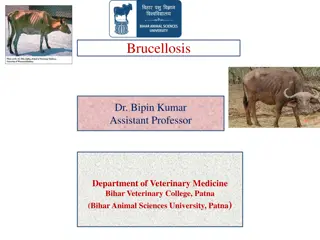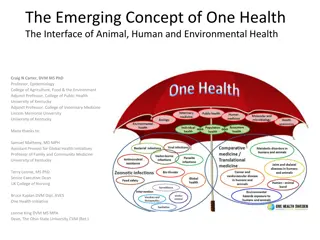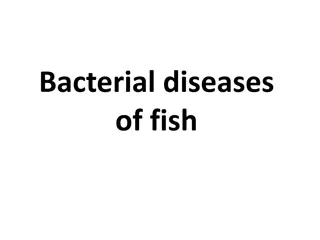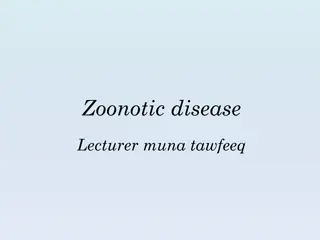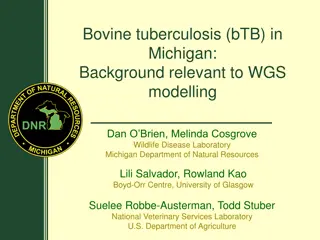Understanding Paragonimiasis: A Zoonotic Disease
Paragonimiasis is a zoonotic disease caused by the Paragonimus lung fluke, primarily transmitted to humans through consumption of raw or undercooked crabs or crayfish. The disease can lead to various symptoms ranging from mild cough and abdominal pain to more severe cases affecting the central nervous system. Diagnosis involves identifying parasite eggs in sputum, and treatment typically includes the use of drugs like Praziquantel. Prevention focuses on avoiding consumption of raw freshwater crustaceans.
Download Presentation

Please find below an Image/Link to download the presentation.
The content on the website is provided AS IS for your information and personal use only. It may not be sold, licensed, or shared on other websites without obtaining consent from the author. Download presentation by click this link. If you encounter any issues during the download, it is possible that the publisher has removed the file from their server.
E N D
Presentation Transcript
Unit 3 ZOONOTIC DISEASES (Credit Hours 3+1=4)
Introduction Paragonimus is a lung fluke, infects the lungs of humans Infected by eating an infected raw or undercooked crab or crayfish CNS cases (when parasite eggs travels to CNS) are more serious but less frequent
Etiology Causative agent is genus- Paragonimus Among the more than 10 species reported to infect humans, the most common is P. westermani (oriental lung fluke)
Disease in Human Incubation Period: 2-15 days light infections: No symptoms Infection can result in an acute syndrome Cough Abdominal pain Discomfort Low grade fever Long term infection mimic- bronchitis or TB (with coughing up of blood tinged sputum)
Diagnosis The of Paragonimus eggs in sputum infection is usually diagnosed by identification Left: Eggs of Paragonimus sp. taken from a lung biopsy stained with hematoxylin and eosin (H&E). These eggs measured 80-90 m by 40-45 m. Right: P. westermani adult, this approximately 1cm long fluke is viewed under magnification. CDC
Treatment Drug of choice : Praziquantel Adult or pediatric- 25 mg/kg (Orally three times per day for 2 consecutive days) In cerebral disease: A short course of corticosteroids may be given with the praziquantel to help reduce the inflammatory response around dying flukes. Alternative: Triclabendazole, adult or pediatric dosage (10 mg/kg orally once or twice)
Prevention & Control Never eat raw freshwater crabs or crayfish. Cook crabs and crayfish for to at least 145 F (~63 C). Travelers should be advised to avoid traditional meals containing undercooked freshwater crustaceans
